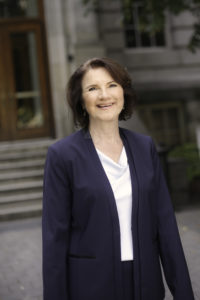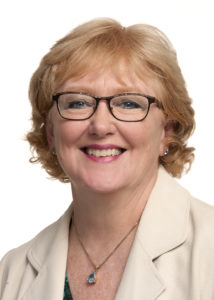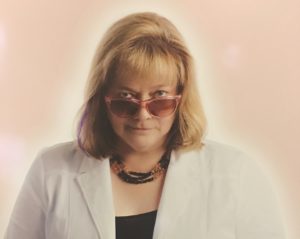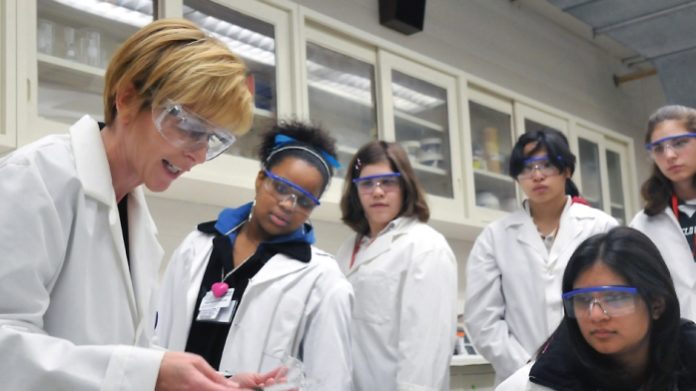October is women’s history month.
It’s also the month of the Nobel Prize announcements.
A little ironic considering women’s history doesn’t contain many Nobel Prizes.
Women make up only 5.4% of Nobel Prize laureates overall with physics and economics having the poorest representation. Of the 115 Nobel Prizes in physics, only two have ever been awarded to women. With stats like these, it’s not surprising that young women might feel that science, technology, engineering, and math – the fields collectively known as STEM – are not for them.
So today, I want to introduce you to three amazing women in STEM and share with you their challenges and their advice.
Note: These interviews have been edited for brevity. To see the full Q&A, take a look at the transcript.
Cristina Amon – Dean of the Faculty of Applied Science and Engineering – University of Toronto

1) What is the biggest challenge you faced in your career and how did you overcome it?
I think one challenge is common among many aspiring engineers, independent of gender: finding role models who encourage their curiosity and help them imagine themselves pursuing a path in the STEM disciplines.
When I was growing up in Uruguay, I was fortunate that several people helped me reach my potential. First, it was a primary school teacher who encouraged me to “tinker” and take things apart. Then it was my parents, who let me continue exploring even when it meant finding our radio scattered in dozens of pieces across the living room floor. Later, it was a high school physics teacher who encouraged me to pursue engineering at the university level in Venezuela and, later, the United States. These champions, mentors and advocates — both men and women — helped me see the possibilities that an engineering career would open, and supported me in pursuing them.
2) What is your favourite thing about working in STEM?
I pursued a career in engineering because I like the challenge of solving a complex mathematical puzzle, and I also wanted to create things that could have a direct and immediate impact on society and on people’s lives. I am very privileged to play a role in nurturing the next generation of global engineering leaders, who will design novel approaches to improve quality of life for people across the globe.
3) Based on your experience, what advice do you have for women in STEM fields or thinking of pursuing a career in STEM?
To young women who are inspired to create change in the world and who have a desire to make lasting positive impact on their communities, I strongly encourage them to consider pursuing a career in the STEM fields. I think that there are many talented young women who are interested in science and technology and who would do well in engineering, but who may be choosing other fields. I view it as my responsibility to let them know about the incredible contributions they can make to solving global challenges — in sustainability, transportation, health and much more — by choosing engineering.
4) Based on your experience, what is your advice for men in STEM fields?
Both women and men have an opportunity to be positive role models to all children curious about science, technology, engineering and math. My advice to the next generation of engineering leaders is to develop advanced communications and leadership competencies alongside your technical expertise: our profession and our world are changing rapidly and we must innovate constantly to lead in today’s complex global environment. This can only be achieved through true collaboration — by listening to and incorporating a wide array of ideas and viewpoints, and working together across traditional disciplinary lines.
Lori West – Professor of Pediatrics, Surgery and Immunology; Director, Canadian

National Transplant Research Program – University of Alberta
1) What is the biggest challenge you faced in your career and how did you overcome it?
A challenge in my career has been taking on too many things (out of general enthusiasm), and then trying to balance all the ensuing commitments. When one is over-committed, the bigger challenge becomes management of ups and downs of an academic career that inevitably occur over the years. When too busy to deal with conflicts sensibly and calmly, these can become mammoth obstacles.
2) What is your favourite thing about working in STEM?
Science inherently involves curiosity. This is my favourite aspect of working in stem because curiosity always leads one along intellectually stimulating pathways.
3) What advice do you have for women in STEM fields or thinking of pursuing a career in STEM?
Be bold. Be fearless. Keep a broad interest across stem and the arts. Have fun. Say yes to every opportunity.
4) What is your advice for men in STEM fields?
Ditto as #3 above
And be aware and supportive of women in stem and the issues that may impair their full participation; you can, and must, be part of the solution; they are your sisters, partners and sometimes mothers!
Imogen Coe – Dean of the Faculty of Science – Ryerson University

1) What is the biggest challenge you faced in your career and how did you overcome it?
I can’t think of a single big challenge – some things are harder, some weeks are harder – but then the same things seem easier at other times. Any challenge required the ability to take a step back, reconsider, and perhaps take some time. Be really intentional about not taking work-related things personally – learning how to develop thick skin. Everything in the end is about relationships with those around us – we want those to be positive and to build us up. Not the opposite.
2) What is your favourite thing about working in STEM?
I’m naturally curious – I always have questions – so the great thing about being a scientist is that I get to work in a profession that is all about asking questions and figuring things out.
3) Based on your experience, what advice do you have for women in STEM fields or thinking of pursuing a career in STEM?
Be courageous, have courage, don’t try to be perfect, don’t listen or associate with people who don’t believe in you, bring you down, make you doubt yourself. Don’t listen to the doubting voice inside. Learn tools and strategies to challenge the barriers, demand what you deserve and hold people accountable.
Don’t match socks (there’s a story there), you can have it all but you don’t have to DO it all – outsource the stuff you don’t like to do. Never take any rejection (job, grant, manuscript) seriously or personally.
4) Based on your experience, what is your advice for men in STEM fields?
Educate yourselves about the issues. Listen, listen more, listen alot…. to what women have to say about their experiences. I heard a story last week about a couple of women professors explaining to a male colleague about some gendered behaviour that they experienced which they felt a male professor probably wouldn’t – he listened to the story and then explained to them that he couldn’t see that it was really a big deal. He completely denied their experience which left them feeling that their experience wasn’t legitimate. Men need to listen and educate themselves on the vocabulary of equity (things like implicit bias, stereotype threat, imposter syndrome etc.) – they need to understand what it means to be an ally to women in STEM and they need to step up and call out unacceptable sexist behaviour by other men.
With role models like these, who wouldn’t want to study STEM?
Interested in supporting women in STEM? Check out the activities going on nationwide for Ada Lovelace Day during October.
WinSTEM Week – Oct. 11-15, Calgary, AB
How men in STEM can be allies to women: A talk by Professor Bryan Gaensler – Oct 17, Toronto, ON
Ada Lovelace Day Wikipedia Edit-A-Thon – Oct. 27, Toronto, ON
Ada Lovelace Day at Ryerson University – Oct. 14-15, Toronto, ON
She Did That: A celebration of women in STEM, in honour of Ada Lovelace – Oct. 11, Toronto, ON




































